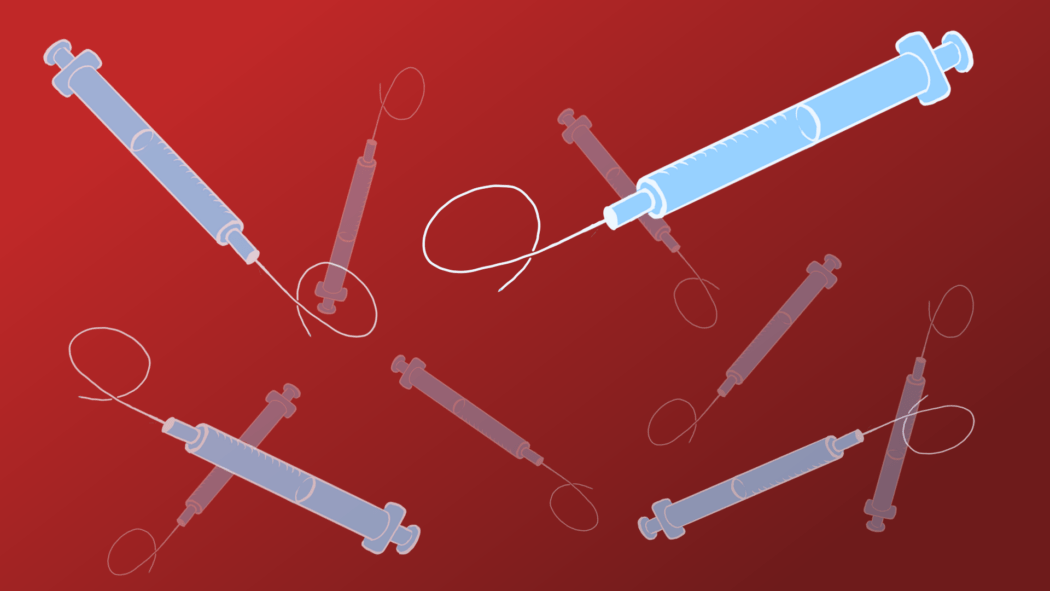Vaccine requirement not as strict as it seems
Coming into spring semester, students were required to fill out a new form detailing their vaccination status. However, despite being labeled as a requirement, the obligatory protocol is not as strict as it may seem at first glance.
There are several exemptions to the requirement. For example, fully remote students or those completing concurrent enrollment courses don’t need proof of vaccination.
Students with personal or religious concerns are also exempt from the requirement. What this means is entirely up to the individual. Students simply need to check the box indicating a religious or personal reason withholds them from getting vaccinated.
Students also had the option to list their plans for vaccinating in the future if they weren’t fully vaccinated at the time of registration.
USU faculty said they will reach out to students who checked this box sometime during the semester, asking if they’ve gotten vaccinated. If so, students will be encouraged to upload their documentation.
If a student hasn’t been vaccinated by that time, they will be given resources to find a place to get vaccinated.
“If you still want to get vaccinated, we can facilitate you finding a vaccine clinic,” Provost Frank Galey said.
USU decided to implement the requirement after the Utah legislature authorized educational institutions in the state of Utah to require proof of vaccination upon registering, permitting the institutions to include the exemptions listed in the bill.
Around the same time, after the FDA approved the Pfizer vaccine, the Utah Board of Higher Education issued a letter encouraging institutions to adopt a vaccine requirement.
“We made the decision at that point to be one of those institutions that would proceed with the requirement,” said Emilie Wheeler, the news director for USU’s University Marketing and Communication Office.
The requirement mirrors those found in many educational institutions across the state.
Despite exemptions, Wheeler has seen an increase in the number of vaccinated students.
According to Wheeler, approximately 84% of the student body has been vaccinated, a number that has been steadily increasing.
For those who still wish to get vaccinated or get a booster shot, USU is providing vaccine clinics for students on Friday, Jan. 14 and Friday, Jan. 21. The clinics will offer first and second doses and booster shots to students, faculty and staff. The clinics will be held at the Eccles Conference Center from 9 a.m to noon on both days.
“No appointments necessary,” Wheeler said. “But you can pre-register with the Bear River Health Department and when you go to their page you just click “other” for the clinic location and then type in USU.”
One of the requirement’s main goals, according to Galey, is to raise awareness for the vaccine and encourage members of the USU community to get vaccinated if they want to.
Despite the initiative’s name, Galey said the requirement is less of a mandate and more of a way for the university to gauge the student body’s vaccination status and encourage students to get vaccinated.
Having an idea of who is vaccinated also helps facilitate the contact tracing and quarantine processes.
Beyond getting vaccinated, Galey has several suggestions for the student body to stay safe during the semester.
First, he encourages students to stay home and fill out the coronavirus questionnaire found on USU’s website if they feel sick or test positive.
Filling out the questionnaire provides students with a variety of resources and accommodations and helps the university keep track of cases.
Second, Galey recommends students to wear a mask indoors, if comfortable doing so. The CDC recommends the surgical KN95 mask as one of the most effective options.
Ultimately, Galey said the requirement and other coronavirus precautions come down to fostering a healthy, safe learning environment.
“What we’re looking at is just mitigating the risk on campus,” he said, ”so that we can keep things going in such a positive way as our USU student population expects.”

